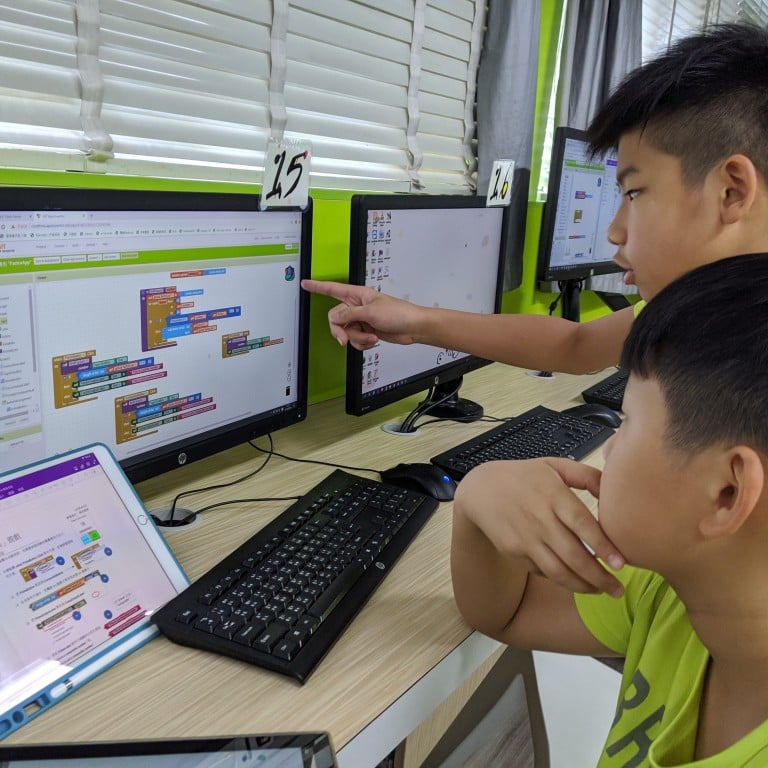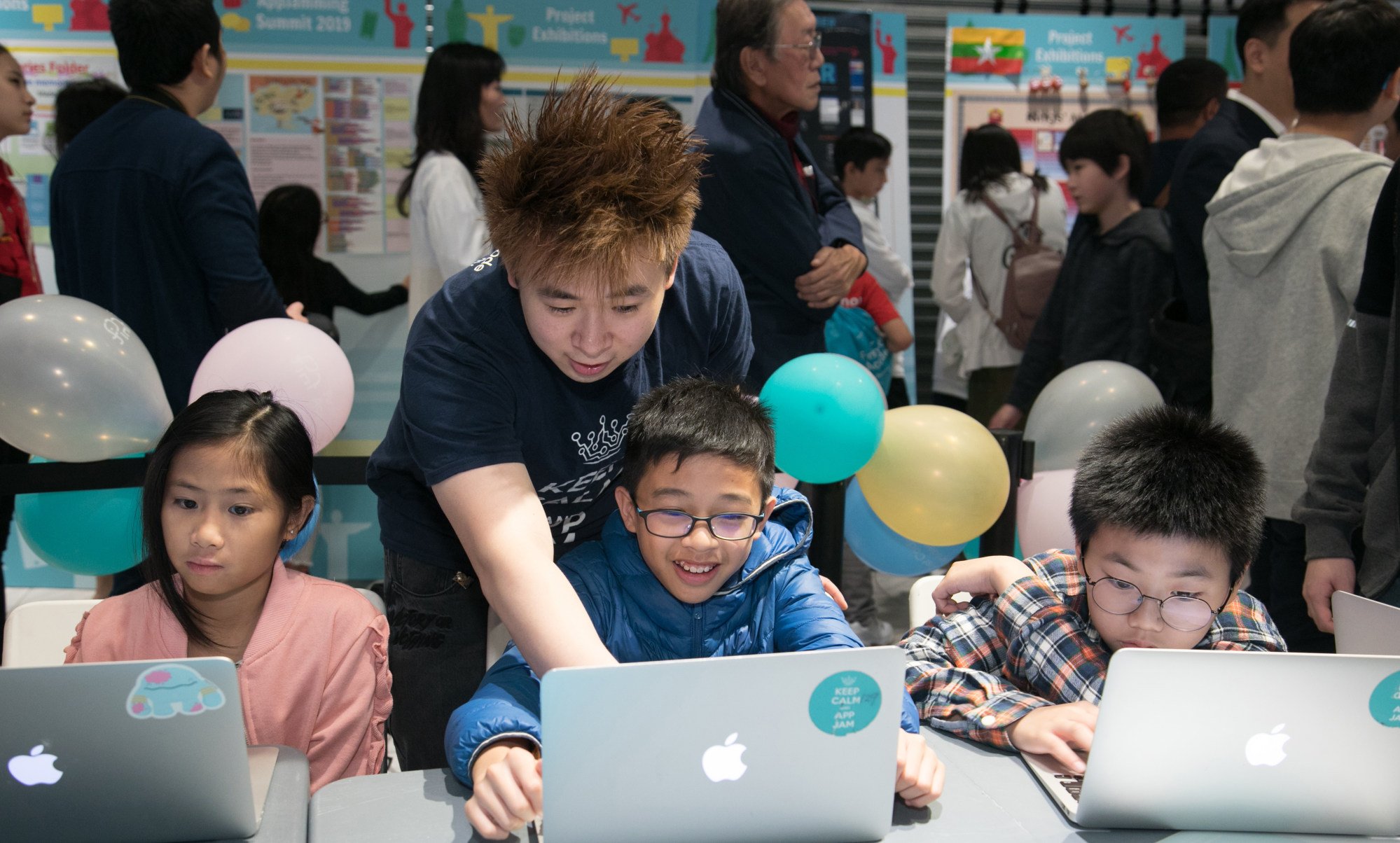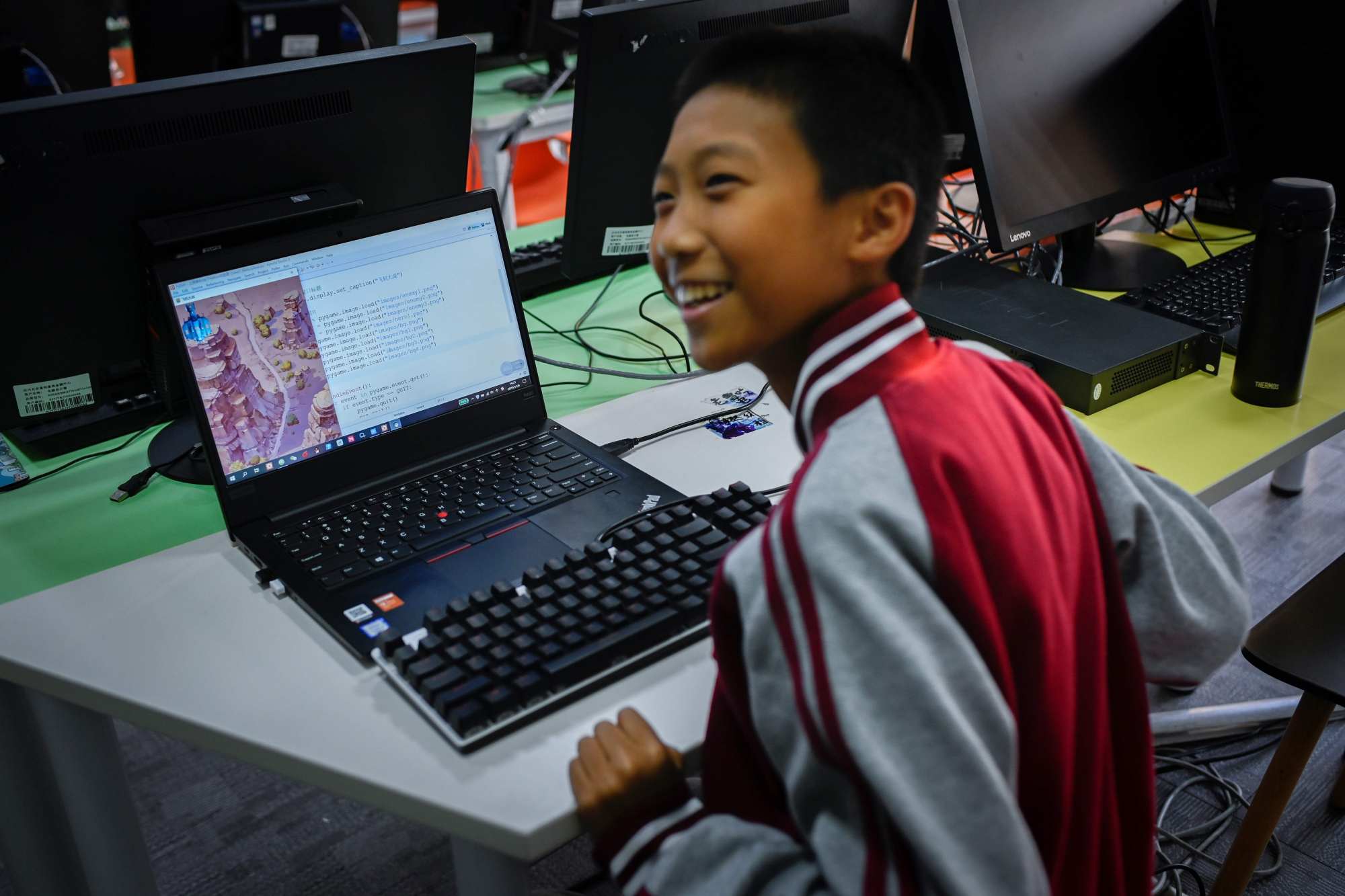
Hong Kong experts highlight the usefulness of coding from a young age to enhance international school students’ problem-solving skills
- Children as young as three are being taught the basics of coding to enhance their attention to detail and all-round problem solving skills as well as for its own value
- Digital natives, they begin with simple games to improve their logic, communication and other skills before moving to HTML, CSS, JavaScript and more
Ask for help figuring out a new smartphone or sorting holiday snaps on your iPad and the answer may well come back: “Find a five-year-old”. That advice may soon ring truer than ever with an increasing number of coding classes now available for Hong Kong children.
“Children can start at any age, but we get asked how kids as young as three can begin their coding journey,” says Sean Yeo, associate director, AISL Harrow Schools, and previously director of education partnerships for BSD Code and Design Academy.
“People have realised the benefits go beyond giving students a critical, real-world skill which they will need in future. Coding also develops other abilities, especially an enhanced aptitude for problem solving and an understanding of how to create something that is effective.”
Yeo explains that coding classes really started to take off in Hong Kong around 2013. At that point, many parents began to appreciate the extent to which technology was changing business – and every other sector. Putting two and two together, they saw it would be even more important for their children’s futures. And with the formal school curriculum giving scant attention to coding back then, independent course providers needed to step in to meet demand.

“Nowadays, people can see that coding is something like the ‘Swiss army knife of education’,” he says. “It can be integrated into any subject or topic and, if taught well, gives students a competitive advantage.”
For its youngest learners, BSD designed a number of tools to help children understand the mindset of coding. In essence, youngsters under six are introduced to coding and programming through play. By taking part in interactive “unplugged” activities and team games, the children develop coordination, logic, communication and social skills.
In play situations and scenarios, the children also learn to consider different perspectives and think their way around simple problems. And by using keyboards and an online learning platform, they enhance their fine motor skills.
This provides a strong foundation to become better problem solvers and “digital natives” when they move on to the next stage. There, the youngsters learn to create online content with HTML, the rules of formatting using CSS, and the logic behind programming by building an interactive experience with JavaScript.
“Once youngsters have mastered the fundamentals of JavaScript, that skill is transferable to other coding languages, so they can easily continue their learning journey,” Yeo says. “Success also breeds confidence, along with a willingness and self-belief to tackle even bigger challenges.”
Wendy Wong, the operations manager of Koding Kingdom (Hong Kong), believes that the increasing popularity of classes for younger age groups stems directly from parents wanting to give their children a head start in life. They can see how tech firms have come to dominate the landscape of international business and hear how technology will keep changing the world around us.

“Our youngest students are five years old, and we teach them computational thinking,” Wong says. “That is all about thinking like a computer, and is very useful for helping students understand programming when they get a little older.”
“From the age of seven, they can begin coding games and designing apps, with a growing appreciation of how everything fits together. Along the way, they develop attention to detail, logical thinking and step-by-step processes.
“Our goal is to train youngsters who code because they want to,” adds Wong. “We help them enjoy the process of learning, and we believe that knowing how to code will bring huge advantages in the future.
“Government, industries and schools are all beginning to realise the importance. What we have seen so far is just the tip of the iceberg,” she says.
Without denying those trends, Natalie Chan, the founder and CEO of OWN Academy, has a different take. Her organisation does not focus on coding and she doesn’t believe it is an essential skill, since advances in artificial intelligence will see machines taking over.
“Currently, there is a major skill gap and, yes, there is a high demand for coders,” Chan says. “However, I believe that sooner or later, coders will become the equivalent of factory workers in the Fourth Industrial Revolution. Coding will turn into a blue-collar job.
“There is a craze right now, but if parents can see beyond the immediate trends, they will realise that every student is talented in their own way and that not everyone is meant to be a coder,” she says. “People say it trains logic and critical thinking, but I think there are a lot of other ways for students to achieve the same outcome.”
